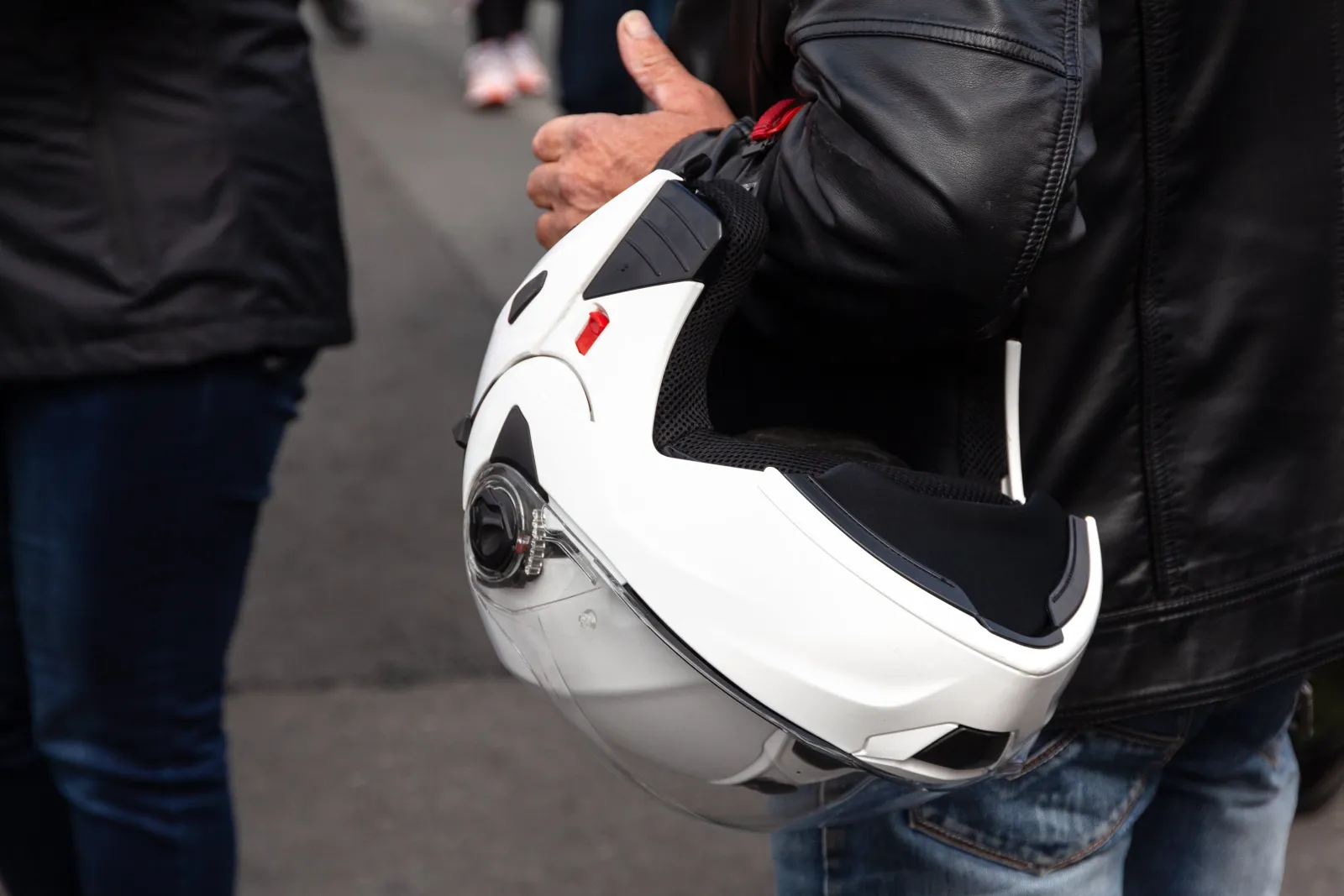The Importance of Wearing Your Helmet While Riding a Motorcycle

Individuals may disagree on whether they
prefer to wear a helmet or not when riding a motorcycle. But the fact remains
that wearing a helmet is extremely important—for a number of different reasons.
Although the safety benefits of a helmet
are obvious to most riders, helmets can also bring certain financial
and legal advantages in the event of an accident. Given than many
motorcycle accidents are caused by other parties liable for collisions, it's
unrealistic to assume that even the most skilled motorcyclist can fully protect
themselves from being involved in an accident.
When that accident does occur, you might be glad you wore your helmet even in spite of the discomforts that may come with this protective equipment. Read on to learn more about the importance of wearing a helmet, along with tips to find the best fit for you.
Why Should Georgia Riders Wear Motorcycle Helmets?
Although some states give riders the
option of wearing a helmet on a motorcycle, Georgia state law requires that everyone on a
motorcycle—including drivers and passengers—be wearing a helmet at all times.
Failure to wear a helmet could lead to
fines and other legal trouble—and that's only if you manage to avoid an
accident. In the event of a crash, the consequences of not wearing a helmet
could become much worse.
Those consequences could affect both your
personal health and your financial well-being. Research suggests that
motorcycle helmets are responsible for saving the lives of more than 1,800
people each year,reducing your risk of death by 37 percent.
Helmets also decrease your risk of a head injury by 69 percent.
Experts estimate that helmets could save the lives of more than 800 motorcycle riders every year. Yet even if you manage to survive your accident, you could face significant costs, and have fewer options to have those costs covered.
The Costs of Failing to Wear
a Motorcycle Helmet
The legal fines for not wearing a helmet
are just one small part of the financial costs that can come with not wearing a
helmet.
If you end up involved in an accident,
your failure to wear a helmet could jeopardize your insurance coverage—even if
another party is liable for your accident—due to your lack of a helmet and the
increased risks this decision creates. It could also complicate your efforts to
seek compensation from a liable party through the court system.
Research suggests that motorcycle
accidents across the country create an extra $1 billion that could have been
saved if all cyclists were wearing helmets at the time of their wreck. If
you're one of the tens of thousands of cyclists involved in accidents every
year, these costs could fall on your shoulders, creating a ripple effect of
costly consequences resulting from your decision not to follow Georgia state
law.
How to Choose the (Best
Motorcycle Helmet)
If you want a motorcycle helmet that will
offer the best protection possible in the event of an accident, you'll need to
seek out a helmet that offers the best fit for your head.
Here are some tips on picking out a
helmet that will keep you protected in an accident:
-—� Make sure the helmet fits
snug on your head and neck. The helmet shouldn't move
around on its own. Instead, it should hold tight to your head, even when battered by
wind.
-—� Wear the helmet for 15
minutes to identify any excessively tight spots. This
soreness will become even worse when riding. If you notice sore spots, the
helmet may be too tight for your head.
-—� Check the ventilation on your
helmet. Proper ventilation is needed to release
trapped heat, and to reduce the presence of humidity that can fog up your
helmet's visor.
-—� Always buy new. A used helmet could be compromised in its safety. Helmets should be
replaced every three to five years and should always be purchased in new
condition.
Where Can I Shop for
(Motorcycle Helmets Near Me)?
While online motorcycle stores can be a
useful tool for researching a helmet purchase, the only way to identify the
(safest motorcycle helmet) for your head is to try these helmets on personally
to test their fit.
A local motorcycle gear retailer is your
best option for finding enough inventory to let you sort through your options
and figure out the best helmet that meets your safety and comfort needs while
fitting your budget. You can also consult local retail experts for additional
guidance in how to make sure a helmet is properly fitted to your head when
riding.
Motorcycle helmets may be the law in
Georgia, but they're also one of the easiest ways to reduce
the costs and suffering you may face in an accident. Don't go riding
without this essential piece of protective equipment.
